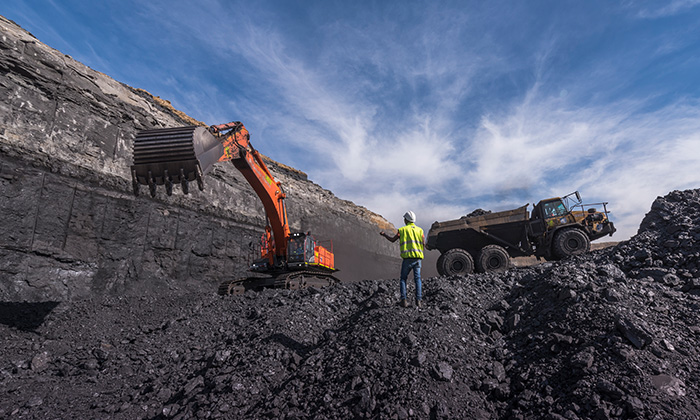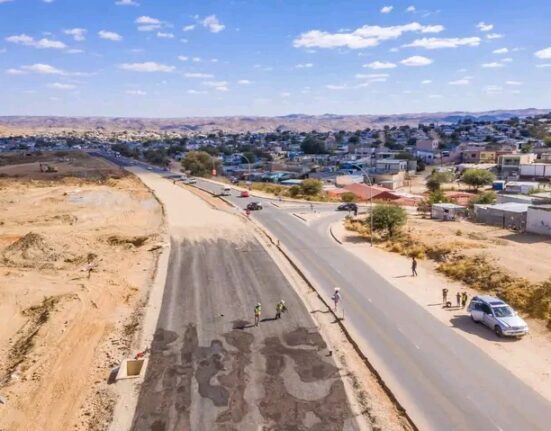Namibia, a country known for its arid landscapes and unique ecosystems, is home to a burgeoning charcoal industry that is rapidly gaining attention both locally and internationally. In a region often characterized by environmental challenges, Namibia has emerged as a leader in sustainable charcoal production, blending traditional practices with innovative approaches to create a greener, more eco-friendly industry. The country’s charcoal sector has not only contributed significantly to its economy but is also setting a precedent for sustainable practices in resource management and environmental conservation.
In this article, we explore how Namibia’s charcoal industry is pioneering sustainability, the steps being taken to protect the environment, the economic and social benefits of sustainable practices, and the challenges that the sector faces as it continues to grow.
1. The Rise of Namibia’s Charcoal Industry
The charcoal industry in Namibia has a rich history, with production dating back several decades. The country is one of the largest producers of charcoal in Southern Africa, with much of its production destined for export markets such as Europe, the United States, and South Africa. The vast supply of acacia and other woody plants in Namibia’s drylands makes the country an ideal location for charcoal production.
Charcoal is a key fuel source in many developing countries, particularly in Africa, where it is used for cooking and heating. In Namibia, it has become a significant part of the economy, contributing to job creation, rural development, and income generation. The industry provides employment for thousands of people, particularly in rural areas, and supports small and medium-sized enterprises in the country’s agricultural and forestry sectors.
2. Challenges Facing Namibia’s Charcoal Industry
Like any industry dependent on natural resources, the charcoal sector in Namibia faces several environmental and socio-economic challenges that must be addressed for its continued growth. One of the primary concerns is deforestation. Charcoal production involves the harvesting of wood from indigenous trees, particularly the acacia species. If not managed properly, this practice can lead to over-exploitation of tree populations, soil degradation, and loss of biodiversity.
Namibia’s arid and semi-arid climate makes it particularly vulnerable to land degradation, and deforestation could exacerbate issues such as desertification and water scarcity. Additionally, while charcoal production has provided important economic benefits, the environmental impact of large-scale wood harvesting is a concern for both local communities and environmental organizations.
3. Sustainable Charcoal Production Practices in Namibia
Despite these challenges, Namibia’s charcoal industry is pioneering sustainability by implementing innovative and environmentally responsible practices. The key to the sector’s sustainability lies in how it balances the demand for charcoal with the need to preserve and restore the natural environment.
1. Responsible Sourcing and Permitting
The Namibian government and industry players have introduced regulations that promote responsible sourcing of wood for charcoal production. The Forestry Act, which governs the management of Namibia’s forests, requires that producers obtain permits for harvesting trees. These permits limit the amount of wood that can be harvested, ensuring that production remains within sustainable limits.
By regulating the harvesting process, the government aims to prevent over-exploitation of natural resources and to protect valuable ecosystems. Sustainable harvesting practices, such as selective cutting and the use of degraded land, help minimize environmental damage and support the regeneration of native plant species.
2. Agroforestry and Tree Planting Initiatives
A key strategy for ensuring the sustainability of Namibia’s charcoal industry is the promotion of agroforestry and tree planting initiatives. Agroforestry involves integrating trees into agricultural land to improve soil fertility, increase biodiversity, and provide a sustainable supply of wood for charcoal production. By planting fast-growing, drought-resistant species, farmers and producers can ensure a continuous supply of raw material for charcoal while enhancing the health of the land.
Namibia has also seen the emergence of tree planting programs aimed at restoring degraded lands and reforesting areas affected by overgrazing and deforestation. These initiatives are supported by both government agencies and private organizations, and they are playing a vital role in reducing the pressure on natural forests while increasing carbon sequestration.
3. Charcoal Kiln Efficiency and Low-Emission Technology
Another area where Namibia’s charcoal industry is making strides in sustainability is through the development of more efficient and environmentally friendly charcoal production techniques. Traditional charcoal production methods, which involve burning wood in earth kilns, can produce high levels of air pollution and inefficient carbon conversion. However, advancements in kiln technology are helping to address these issues.
Newer kiln designs, such as the metal “retort” kilns, offer significant improvements in terms of efficiency and emissions. These kilns allow for better control of the burning process, leading to higher charcoal yields and lower emissions. In addition to reducing air pollution, more efficient kilns also contribute to less wood being needed to produce the same amount of charcoal, thereby helping to conserve natural resources.
The use of low-emission technology not only benefits the environment but also improves the health and well-being of workers in the industry, who are often exposed to harmful fumes from traditional charcoal production methods.
4. Certification Programs and International Standards
In an effort to ensure that charcoal production in Namibia is both sustainable and marketable, industry stakeholders have worked to align with international sustainability standards. Certification programs such as the Forest Stewardship Council (FSC) and the Roundtable on Sustainable Biomaterials (RSB) are increasingly being adopted by Namibian producers.
By obtaining sustainability certifications, Namibian charcoal producers can demonstrate their commitment to responsible sourcing and environmental stewardship, which is an important factor in accessing premium markets in Europe and other regions where consumers are increasingly concerned about the environmental impact of their purchases.
4. Economic and Social Benefits of Sustainable Charcoal Production
The sustainable development of Namibia’s charcoal industry has significant economic and social benefits for the country, particularly in rural areas.
1. Job Creation and Rural Development
The charcoal industry provides employment opportunities for thousands of Namibians, especially in rural areas where alternative economic opportunities may be limited. Charcoal production, transportation, and sales create jobs for workers, ranging from those who harvest wood to those who manage and operate kilns. In addition, the industry supports many small and medium-sized enterprises, including logistics companies, packaging businesses, and retailers.
By promoting sustainability, the industry can ensure long-term employment prospects while safeguarding the natural environment. Moreover, the economic benefits of sustainable charcoal production can help reduce rural poverty and improve livelihoods in communities that depend on the sector for their income.
2. Community-Led Conservation Efforts
In many parts of Namibia, local communities have taken the lead in managing and conserving their natural resources through community-based natural resource management (CBNRM) programs. These programs allow local communities to have a direct stake in the sustainable use of forests and woodlands, enabling them to generate income from charcoal production while also maintaining the health of the land.
Community-driven conservation efforts, combined with sustainable harvesting practices, help ensure that the benefits of charcoal production are shared equitably and that the environment is preserved for future generations. These initiatives empower communities to become stewards of the land, improving both environmental outcomes and social cohesion.
3. Revenue Generation for the Government
Sustainable charcoal production also generates significant revenue for the Namibian government. Through permit fees, export taxes, and regulation of the charcoal trade, the government is able to invest in conservation programs, infrastructure development, and the promotion of sustainable agricultural practices. This revenue can be reinvested into local communities, further supporting the long-term sustainability of the charcoal industry.
5. The Road Ahead: Expanding Sustainability in Namibia’s Charcoal Sector
While Namibia’s charcoal industry has made impressive strides in sustainability, there are still areas for improvement. One key challenge is expanding the use of efficient kiln technologies across the sector, particularly among small-scale producers who may lack the resources to invest in modern equipment. Training and capacity-building programs are essential to ensure that all players in the industry adopt sustainable practices.
In addition, the development of local markets for sustainable charcoal products could reduce Namibia’s dependence on international demand and create new opportunities for domestic consumption. This could involve promoting charcoal as a cleaner, more environmentally friendly alternative to other fuels in both urban and rural settings.
The continued promotion of agroforestry, carbon offset projects, and certification programs will also be crucial for enhancing the sustainability of the industry. Furthermore, partnerships between government, industry, and non-governmental organizations will be essential to scale up efforts to restore degraded land, protect forests, and promote responsible resource management.
Namibia’s charcoal industry is a prime example of how sustainable practices can be integrated into natural resource-based industries, offering a model for other countries in Africa and beyond. Through responsible sourcing, efficient technology, and community-driven conservation efforts, Namibia is ensuring that its charcoal industry remains environmentally viable and economically beneficial for years to come. As the sector continues to evolve, it will undoubtedly play a pivotal role in the country’s sustainable development, providing a cleaner, greener alternative for global markets and a more resilient future for Namibia’s rural communities.













